Robin Blinder | Editor & Publisher
The 2022 class of “Over 50” grew this year by 10. Earlier this year, we committed to the industry to “cast a wider net” or publicize our salutes intentionally across the industry to give more opportunities for recognition. We did that, and you answered. We had a great response, with so many deserving candidates this year that we decided to expand our “15 Over 50” to “25 Over 50.”
The 25 news media professionals you’ll meet were nominated for their strong work ethic, transformational mindsets, commitment to journalistic and publishing excellence, and their ability to lead during challenging times. They are optimistic about the future and proud to be part of guiding the next generation forward. We know their passion for this industry will shine through their profiles.
(In alphabetical order by last name)
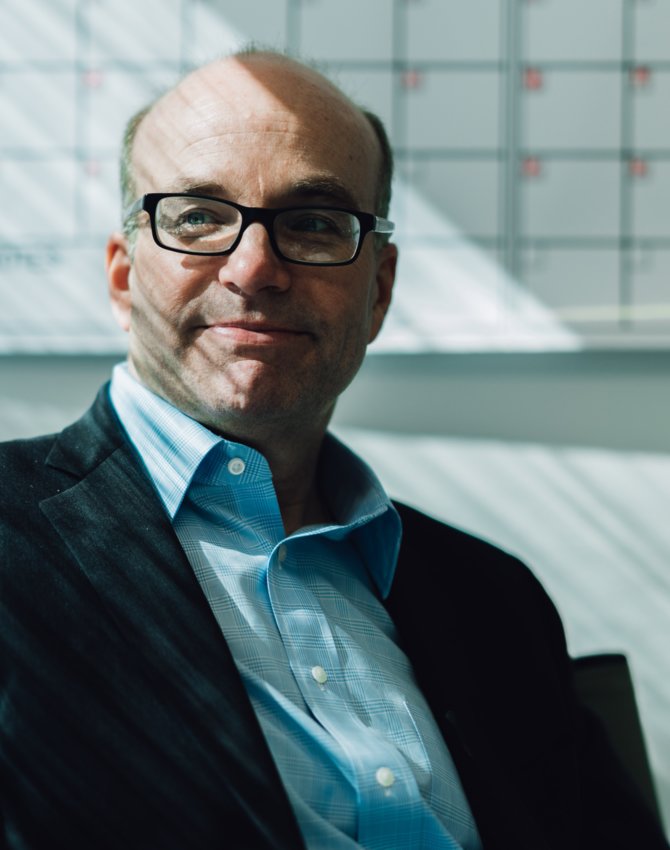
Mike Allen
Co-founder, Axios, Arlington, Va.
First job in news:
My first job out of college was as a reporter covering two rural counties (King George and Westmoreland) for The Free Lance-Star of Fredericksburg, Virginia. I’m so grateful to the editors there for trusting me to cover a wide range of stories I had no business covering. One night, the reporter who covered the planning commission for Stafford County, the paper’s biggest county, was out, and I got to suit up and cover. I was so excited. I put on a tie and went and got the packet early.
What are some of the most important lessons you have learned while working in news?
As I moved from being a reporter to being a leader, the most important lesson I learned was one that actually is applicable from Day 1, whether you’re the intern or a publisher. That is: Serve the people beside you and beneath you. We naturally serve the people above us. Spoiler: They can take care of themselves. If you're an intern looking out for the other interns, or a Day-1 employee thinking about your team instead of yourself, you instantly become one of the most valuable people in the organization.
When you reflect on your career to date, what brings you the greatest sense of accomplishment?
My greatest sense of accomplishment is playing a role in helping create opportunities for some of the world’s worthiest journalists, as a co-founder who took a chance on Politico and Axios when there were a lot safer and more obvious — and probably easier — places to work. At Axios, we aim to make sure that every single colleague has the best job they’ve ever had.
What are your predictions for where news publishing/news media is headed?
I love this business so much. My family got three newspapers in the driveway, and I had the bug way back to my high school paper (the Crusader Gazette), my college paper (Washington and Lee University’s The Ring-tum Phi), and even before. This great field will always reward people who think fast, work hard and have a love of the game. With my Axios co-founders, Roy Schwartz and Jim VandeHei, and our hundreds of talented colleagues, we’ve discovered there’s a huge appetite for smart, quality coverage of topics that matter. It’s a hopeful moment for journalism. So soak it in, and take a chance. The water’s fine.

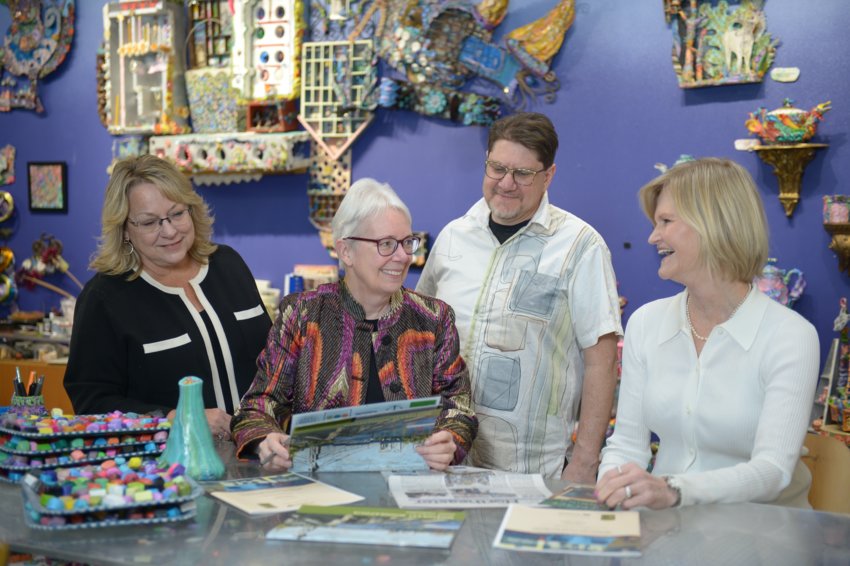
Margo Ashmore, 65
Owner/Publisher, Northeaster, Minneapolis
First job in news:
A volunteer position at WMMR radio news. My first paid position was the editor/coordinator at West Side/West St. Paul Voice newspaper.
What are some of the most important lessons you have learned while working in news?
Every inch counts. Every word counts. Readers appreciate a paper that’s packed with good information.
Community newspapers have great power, which should be used wisely, as sometimes it is only power when exercised.
Know when to get out of the way so that someone else can do better. I learned this when we started a paper in 1991, North News for North Minneapolis. By 2010, I thought it could best contribute to the community as a youth journalism learning lab but was unsuccessful at getting that going. In 2015, I sold it to the nonprofit Pillsbury United Communities. They were able to follow through while building on our reputation. One of their earliest youth graduates has returned as their full-time reporter and youth program coordinator.
When you reflect on your career to date, what brings you the greatest sense of accomplishment?
Being surprised at the unintentional impact a person or publication can make. Early in my career, reporters were all volunteers, so the culture was based on motivations other than money, such as an opportunity to stretch and benefits from informal mentoring. Probably 20 years after I worked with a 14-year-old boy, this young man wrote to me to say thanks for taking a chance on him and that he had gone on to work for one of the big news services. Occasionally I hear from someone that I gave them some good piece of advice or that an article changed their life.
What are your predictions for where news publishing/news media is headed?
As long as publishers/owners don’t spend more than they take in, are not greedy, serve their communities and listen to their various audiences, geographic-based media — legacy/local print, TV and radio — will survive. Everyone in an area having access to the same information at the same time (and easily find it in an archive for future reference) is necessary to democracy and stewardship of place.

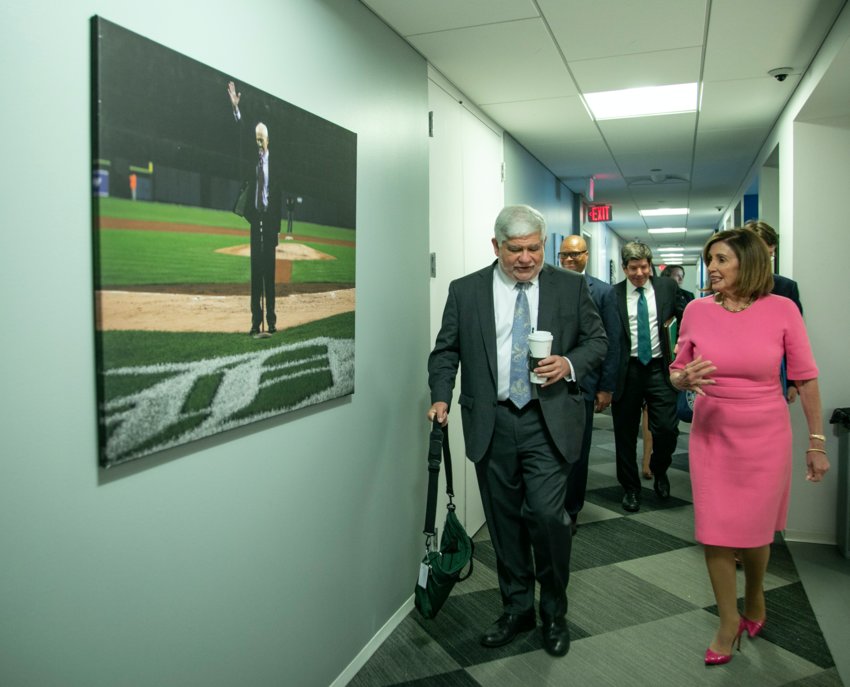
Peter Bhatia, 69
Editor and Vice President, Detroit Free Press and Michigan and Ohio regional editor, USA TODAY Network
First job in news:
Publishing a neighborhood newspaper in my hometown of Pullman, Washington, and likely broke copyright laws. My dad ran it off on a ditto master at his office. Happily, no copies survive. My first paying job was as a summer intern at The Spokesman-Review, Spokane, Washington, in the summer of 1974.
What are some of the most important lessons you have learned while working in news?
Journalism is fun. Enjoy every minute you are making it happen. Listening is more important than talking.
Also, do what you say you’re going to do. Make sure expectations are clear, then let people do their jobs. Journalism, journalism, then journalism. The rest will follow.
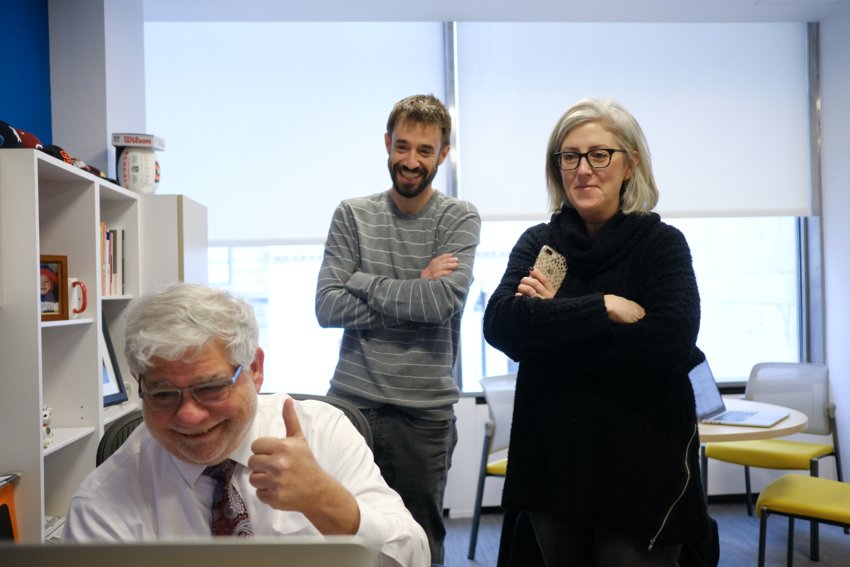
When you reflect on your career to date, what brings you the greatest sense of accomplishment?
Helping so many amazing journalists achieve their potential. I’ve worked in all four time zones and eight different news organizations, and the people are what makes journalism so wonderful.
What are your predictions for where news publishing/news media is heading?
If I could predict the future, I’d do a lot better every year in the March Madness pool. But even with the current economic uncertainties, I am more encouraged about the future than I have been in recent years. It’s important to remember that, three decades into digital journalism, we are still in a transition. There is a future if we embrace all the digital tools, stay true to journalism, do a much better job listening to our communities and embrace our multicultural society. Digital subscriptions are a positive step. Yes, print will decline, and we’ll see more and more cutbacks in print days. But journalism has a great future in the digital age, and I believe we can find it.

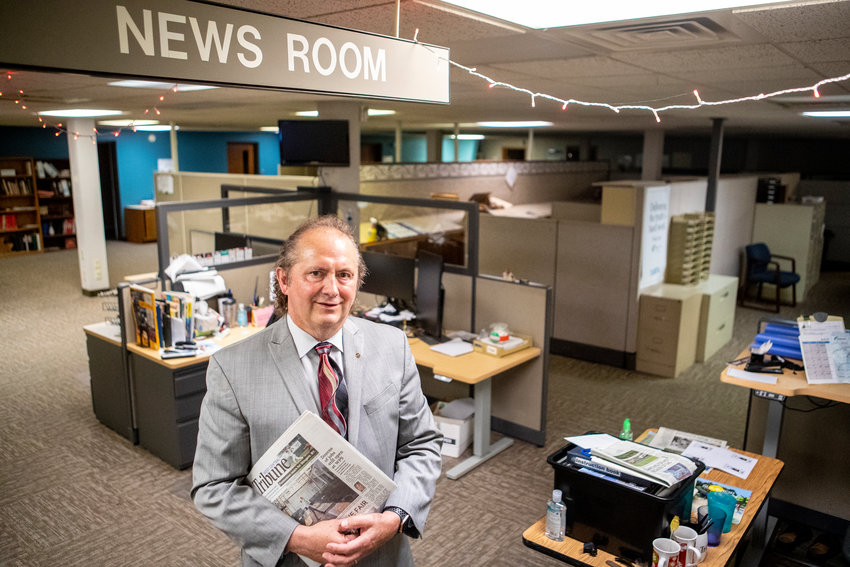
Kelly J. Boldan, 65
Editor, West Central Tribune and WCTrib.com, Willmar, Minnesota
First job in news:
First, I started a high school paper as a Motley High School freshman in 1971-72. Second, I wrote an agricultural column in the summer of 1972 for my hometown paper, Staples World, for 25 cents a column inch.
What are some of the most important lessons you have learned while working in news?
The news industry is constantly changing. I first started writing on manual typewriters and later electric IBM typewriters. Then came early computer systems in the early 1980s, faster computers and pagination in the 1990s, the internet by the mid-1990s and laptops in a new century with direct to negative technology. Then in the 2010s came direct-to-plate technology. The last decade has seen more industry and technological change than the previous years. The lesson learned is to embrace change, as it is constant.
When you reflect on your career to date, what brings you the greatest sense of accomplishment?
The first half of my career was in agriculture journalism. I was a farm reporter/copy editor for the Sulphur Springs (Texas) News-Telegram in 1981. I then led the launch of Country World, a weekly agricultural newspaper for eastern Texas, in late 1981. In 1983, I returned to the Midwest as editor of Agri News, a weekly agricultural newspaper in Minnesota and Iowa, owned by the Rochester (Minn.) Post Bulletin, where I led the team that launched the Post Bulletin’s first website, postbulletin.com.
In late 1998, I was fortunate to return to daily newspapers as editor of the Bemidji (Minn.) Pioneer, part of Forum Communications Co. and later led the launch of its first website, bemidjipioneer.com, in 2001. I was later named editor of the West Central Tribune in Willmar, Minnesota, another FCC newspaper.
I have also served on the Minnesota Newspaper Foundation board and the Minnesota Associated Press board. I am currently serving on the Minnesota Newspaper Association board.
Through the years, I have worked with many great journalists. Many stayed with their respective publications, and others have moved on to new journalism or communication roles. I was fortunate to work with all of them.
What are your predictions for where news publishing/news media is heading?
Journalism will continue delivering news and content digitally and in the coming decade, likely via technology unknown to us now. The content form will be audio, news stories, photos, podcast, videos and more. Change is constant, and changes in journalism will continue. You must learn to embrace change or be left behind. The free press is critical to the United States and must be protected. The future is to report compelling content digitally now and promote it via social media. Local news — spot news and in-depth — continues to be the key to our future. Investing in and maintaining strong content teams will be imperative to our future revenue and success. I'm looking forward to the next generation of journalists embracing our challenges and forging journalism’s future.

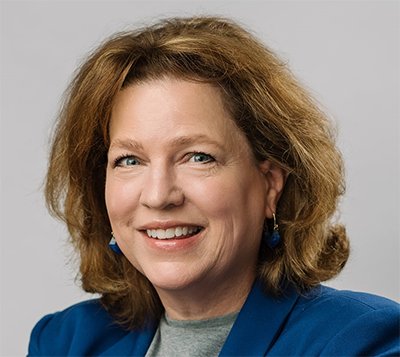
Jana Collier, 57
Publisher, Cox First Media (Dayton Daily News, Springfield News-Sun, Journal-News), Dayton, Ohio
First job in news:
Reporter at The Brazosport Facts, Clute, Texas.
What are some of the most important lessons you have learned while working in news?
I am so grateful for the people who’ve invested in me over the years, who’ve taken the time to give me feedback and share their insights, who’ve provided me with opportunity — to try, to fail, and, thankfully, sometimes to succeed. When I think about the lessons these experiences and people have taught me, I think of three things:
When you reflect on your career to date, what brings you the greatest sense of accomplishment?
It’s such an honor to have witnessed so many important events in the communities I’ve lived in and to have played a role in helping those communities make sense of what occurred and find a path forward. But by far, my biggest sense of accomplishment is the people themselves. The people I’ve worked with — journalists, salespeople and operations experts — have helped me find meaning in everyday work and have given me strength and courage through difficult times. The people I’ve worked for, our customers, have helped me realize the impact of what we do and to see the difference we make in their lives. And the people I’ve met in the community along the way — sources, leaders and everyday citizens — have opened my eyes to new ideas and ways of looking at the world.
What are your predictions for where news publishing/news media is heading?
Despite all the gloom and doom I’ve heard over the years about newspapers, I actually believe newspapers have the strongest potential of all news media. That’s because we have an established subscription business model and credibility as news worth paying for. But if newspapers are to leverage this advantage, we will have to free ourselves from the idea that we are our format. We will have to let go of print and embrace the evolving ways of gathering and creating news and of reaching customers in the future.

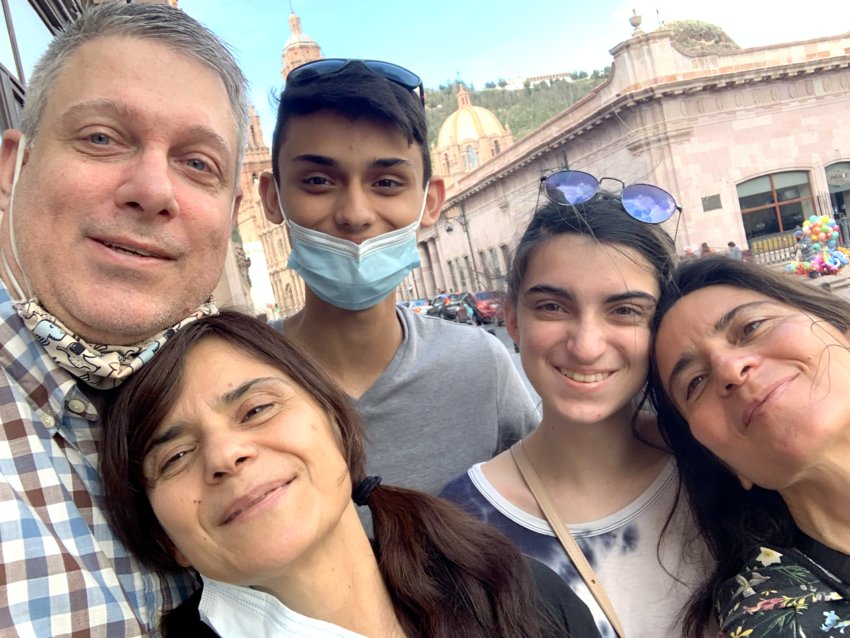
Kevin Dilley, 52
Director of Student Media, Kent State University, Kent, Ohio
First job in news:
As a teen, I delivered my hometown weekly newspaper, The Canton Observer. My first full-time news job was as a photojournalist at The Monroe Evening News, a daily newspaper covering Monroe County, Michigan.
What are some of the most important lessons you have learned while working in news?
“Go early, stay late” taught me how to outwork the competition. Be hyper-observant, and be ready for the unexpected. “Continuous improvement” taught me to see change and growth not as a destination but as the daily journey of what we do. “Fact check your mother” taught me to be skeptical enough with all sources to ensure that we share information that is accurate, relevant and in context. “The schoolhouse gate” taught me that the First Amendment should be vigorously defended and fully applied to the student experience through strong scholastic journalism in high school and college. “Show, don't tell” taught me to visualize my reporting to create impactful stories. This applies equally to explaining budgets and organizational initiatives, which are expressions of a group’s story (mission). “Innovate or die” taught me to be a creative problem solver in all that I do and not to wait for somebody else to come rushing in with the solutions.
When you reflect on your career to date, what brings you the greatest sense of accomplishment?
My biggest sense of accomplishment comes from the students I’ve been lucky enough to connect with over the past decade. Jenna, Rafael, Morgan, Antwanise, Ryan, Nizia, Anna, Zaria, Benjamin. These are some of the hundreds of students involved in student media at the three universities where I’ve helped to create meaningful experiences for emerging professionals. When I see them posting about their career and life accomplishments, I am filled with pride. Some have gone on to promising and developing journalism careers; others have used their educational experiences to mark out different paths. Yet, all of them represent the success and promise of collegiate journalism and student media and demonstrate that strong collegiate programs are vital to the future of our industry.
What are your predictions for where news publishing/news media is heading?
The news publishing and news media industry will continue returning to the people. After years of experimenting with citizen journalism, blogging, hyperlocal and other such efforts, these small, independent and community-focused efforts will multiply and find stronger financial footholds. They will continue to gain traction in their communities while building new audiences. They will find resource support beyond their individual communities through collaborative networks of aligned efforts that emphasize excellent journalism, the way Bill Kovach and Tom Rosenstiel so aptly put forth in “The Elements of Journalism.” Independent journalists will continue to thrive using easily accessible community platforms. Private-public partnerships, especially ones that leverage the strength of universities and student media, will fill in where corporate media has come up short. People intrinsically know that to be free and self-governing, they require trustworthy, accurate and relevant news and information. Our industry will continue to find ways to deliver on that fundamental requirement of our democracy.

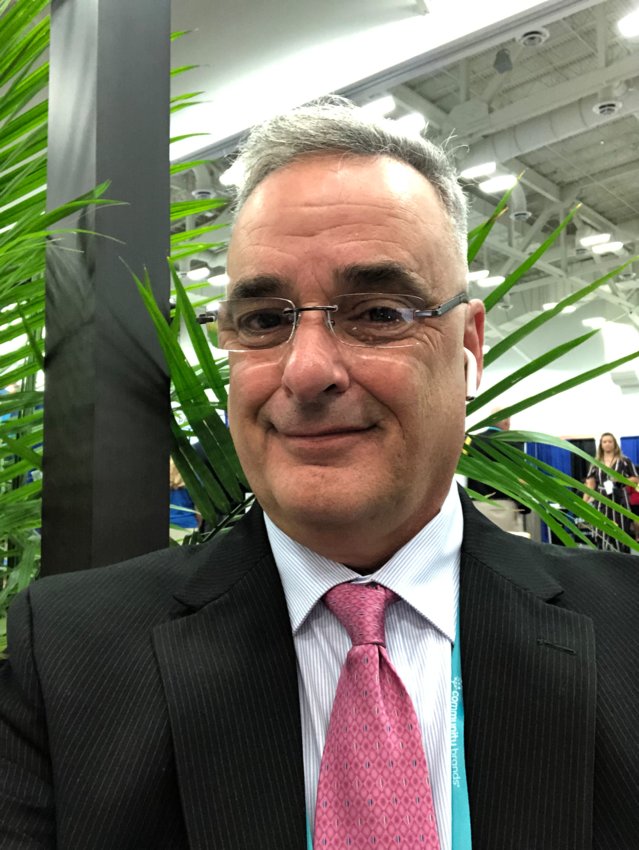
DJ Doran, 62
CEO, Aequalitas Media Chicago
First job in news:
Publisher of the local LGBTQ Indianapolis newspaper, The Eagle.
What are some of the most important lessons you have learned while working in news?
Be truthful, be fair and be objective.
When you reflect on your career to date, what brings you the greatest sense of accomplishment?
Building an LGBTQ+ media company from scratch to become one of the largest in the country.
What are your predictions for where news publishing/news media is heading?
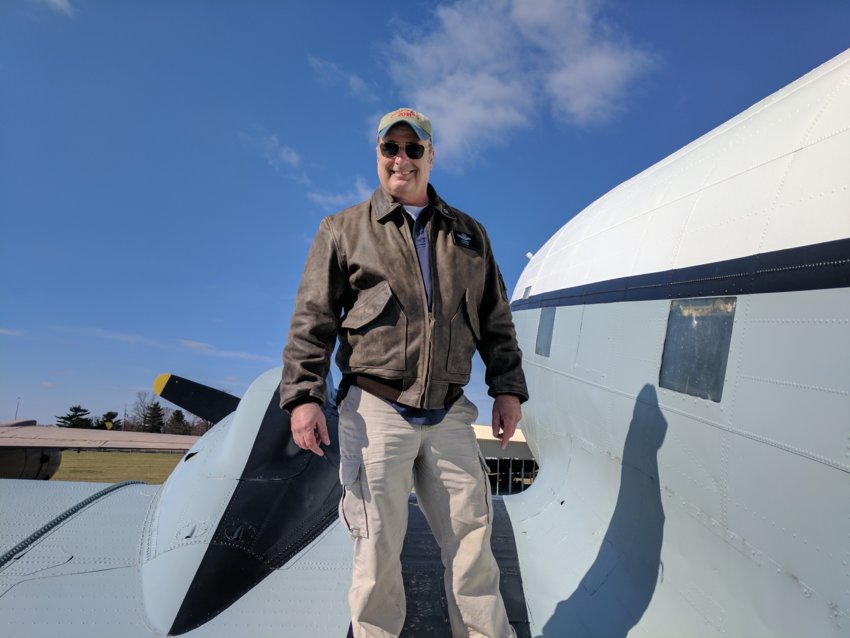
I think people are tired of “infotainment” masquerading as journalism. We have seen the erosion of trust between news organizations and their audiences, which needs to be reversed. I will always believe that good content drives traffic, and increased traffic drives revenue. I think that in an age where salacious clickbait headlines rule, publishers need to provide audiences with high-quality content to stand out. Print will always be the standard by which media is measured, but without investment in digital content, we run the risk of being left behind. Print and digital content should form a symbiotic relationship with your publishing and complement each other toward increasing revenues.

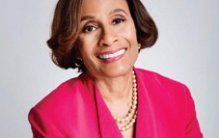
Frances Murphy Draper (Toni)
CEO and Publisher, The AFRO-American Newspapers (@AFRONews), headquartered in Baltimore, Maryland, with offices in Baltimore and Washington, D.C.
First job in news:
Reporter for the AFRO at age 14.
What are some of the most important lessons you have learned while working in news?
There’s always a story behind the story. All people deserve respect. You’re only as good as your team, so value each person regardless of their position. And, take time to really listen.
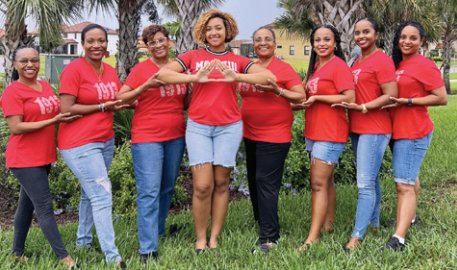
When you reflect on your career to date, what brings you the greatest sense of accomplishment?
The AFRO recently (June 2022) received several awards for journalistic excellence, including the National Newspaper Publishers Association’s coveted John B. Russwurm trophy. In addition, I was voted “Publisher of the Year” by my NNPA peers. I am also honored, with so many others, to continue the legacy started by my great grandfather, John H. Murphy, Sr. (with $200 in venture capital from my great-grandmother Martha Howard Murphy) in 1892.
What are your predictions for where news publishing/news media is heading?
Local, community news will become more relevant, especially for communities of color. People need trusted sources to tell their stories. Digital products, analytics and social media are important tools, but they are not replacements for good, solid, accurate journalism.

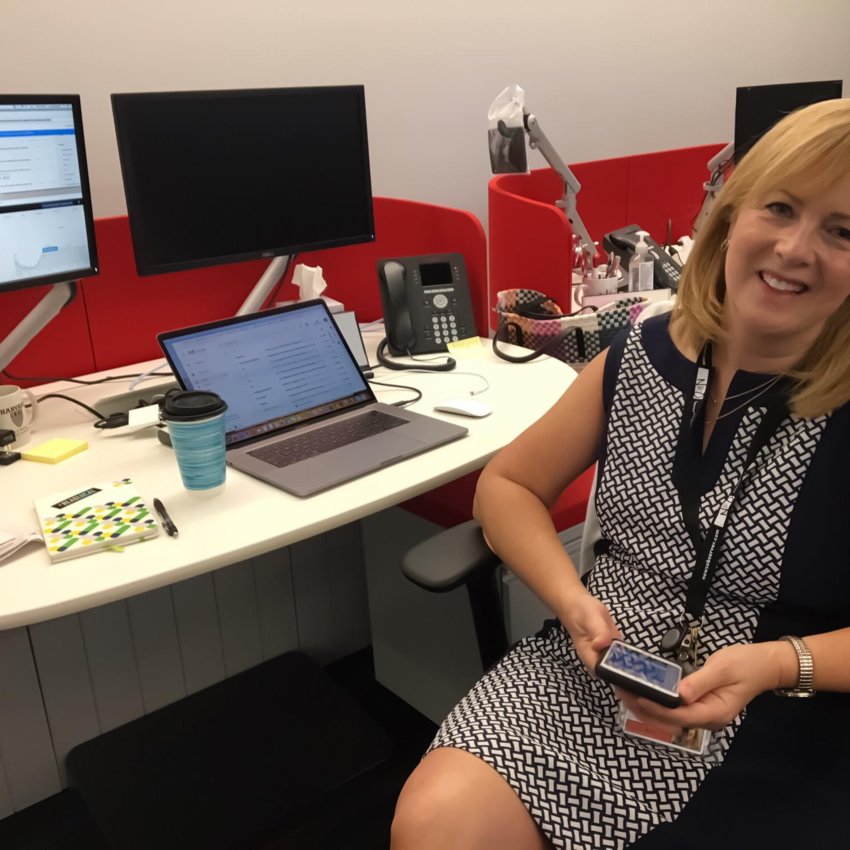
Jane Elizabeth
Media consultant, Consult Creative, LLC; journalism instructor, Ohio University
First job in news:
I was the “news correspondent” from my high school for a weekly section called “Young Virginians” at The Richmond News Leader, an afternoon newspaper that eventually closed. And I got paid!
What are some of the most important lessons you have learned while working in news?
First, I learned early that daily newspaper journalism is a volatile and ever-changing career. This realization has kept me forward-looking and determined to help the industry adapt to challenges and keep moving ahead. Second, I’ve learned that homogeneity in this industry is harmful, obstructive and counter to the purpose of journalism. We are so much better when there are more voices in the room.
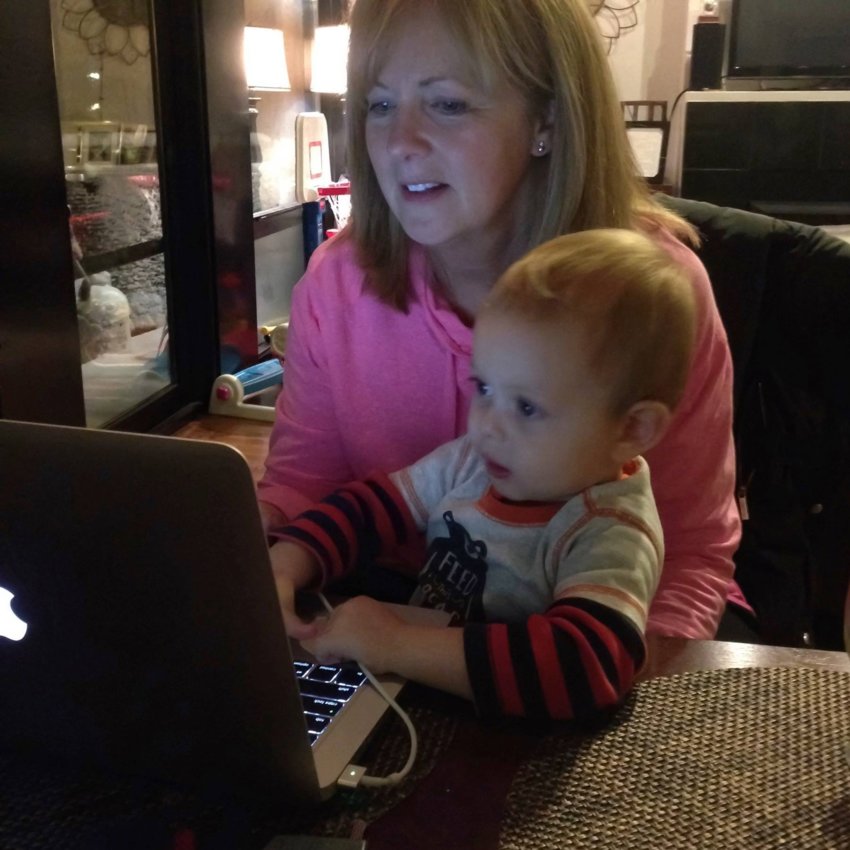
When you reflect on your career to date, what brings you the greatest sense of accomplishment?
I’ve been happiest in digital roles that required me to tackle the future — and bring my staff along with me. Change isn’t scary; it’s motivating and energizing and makes you smarter.
What are your predictions for where news publishing/news media is heading?
The industry isn’t dead or dying, for starters. There are many paths journalism might take, but death isn’t one of them. I hope the future of news is more collaborative, more community-focused, more diverse and financially supported in a way that we never again have to see an advertisement depicting gut bacteria.

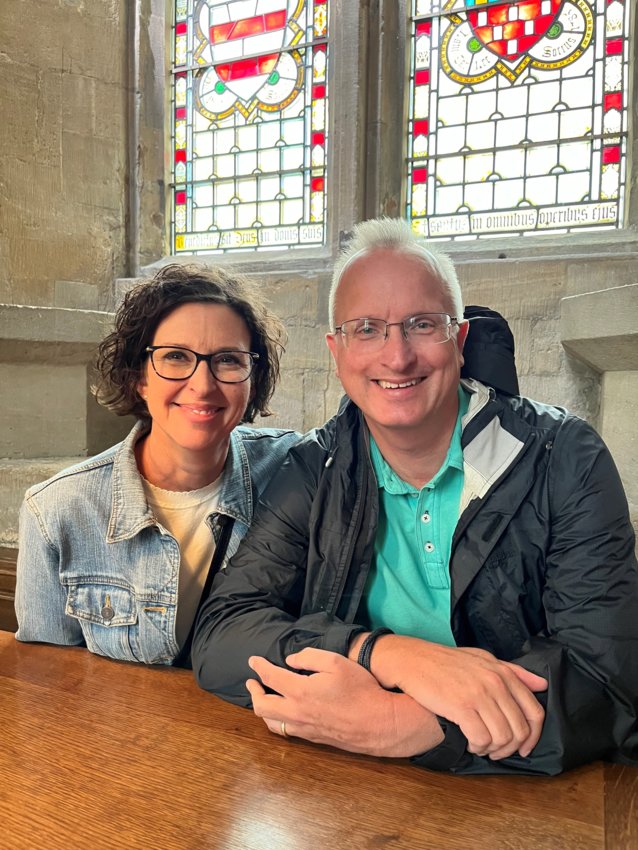
Kevin Hall, 52
Chief Revenue Officer, Georges Media Group (The Advocate, NOLA.com, The Times-Picayune), Louisiana
First job in news:
A retail territory sales rep at The Patriot-News in Harrisburg, Pennsylvania, right out of college.
What are some of the most important lessons you have learned while working in news?
You’ve got to have a growth and innovation mindset to stay relevant. Make sure you have a boss that will encourage and support your career development. Communicate your growth priorities to your team every chance you get because it’s a reminder to you as much as it is to them. Pick at least one way you will serve others in your community outside of work.
When you reflect on your career to date, what brings you the greatest sense of accomplishment?
Helping some amazingly talented people grow their careers. Seeing local business customers thrive even when a business climate is challenging.
Also, being involved in large-scale projects like Georges Media’s “Mardi Gras for all Y’all” shows and our latest, Home Field Sports, a sports betting content division. And navigating through a 30-year career in five states working in a business that I love.
What are your predictions for where news publishing/news media is heading?
We have more opportunities than ever to expand our business if we continue to invest in relevant content in whatever form the audience wants to pay for. And it’s more important than ever to spend time listening to business leaders and the citizens of our communities to uncover the opportunities we don’t even know about yet.

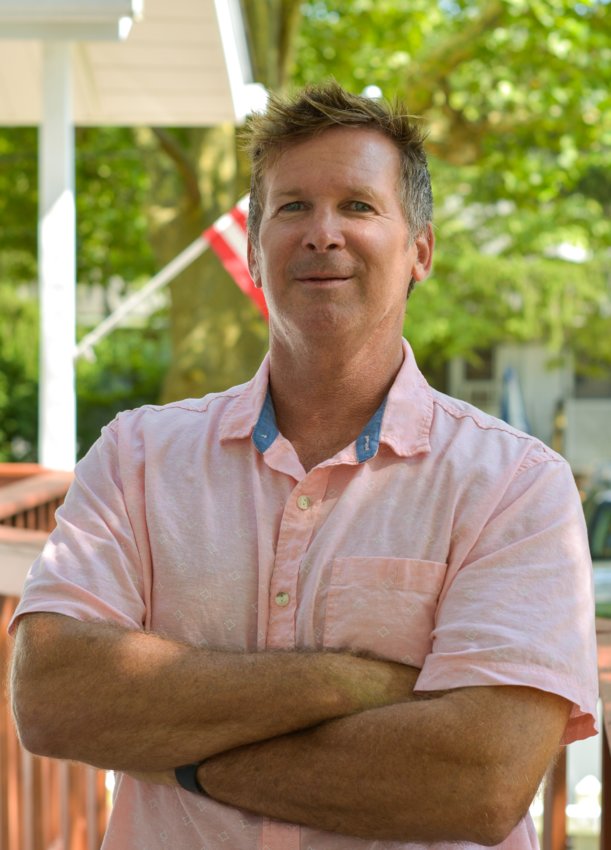
WF “Buzz” Keough, 59
Executive Editor, The Press of Atlantic City, Pleasantville, N.J.
First job in news:
Editorial Assistant.
What are some of the most important lessons you have learned while working in news?
There is no better place to work than in a newsroom. It is one of the most vibrant, chaotic and fulfilling places to work. And on top of that, most days, it’s just plain fun.
I’ve also learned, more recently, that the passion for journalism is not an eternal torch. It needs to be stoked, and it’s up to those of us still in the industry to find ways to help the next generation find its niche.
When you reflect on your career to date, what brings you the greatest sense of accomplishment?
Helping to tell the stories of so many people in our community for so long has always felt satisfying. I’m also proud of the partnerships we’ve been able to forge and the innovation and problem-solving we do on a daily basis. Whether it has been creating a television program with our local university’s students or partnering with others such as ProPublica or a scientific organization focused on climate change to tackle deeply-rooted issues in South Jersey — finding ways to tell stories is rewarding.
What are your predictions for where news publishing/news media is heading?
The future is cooperative — and collaborative! There is strength in partnerships. Competition for stories is not dead. It’s still very much a part of what motivates us as journalists. But more and more, the work of getting information to the public can be helped with strategic joint ventures with the growing array of non-profits, colleges and advocacy groups.
Also, I believe the conventional wisdom that journalism has suffered due to its generalist approach is false. A local newsroom’s strength remains its ability to wade into different topics, find the right sources and come back with a good, explanatory story or video that provides valuable information to our audience.

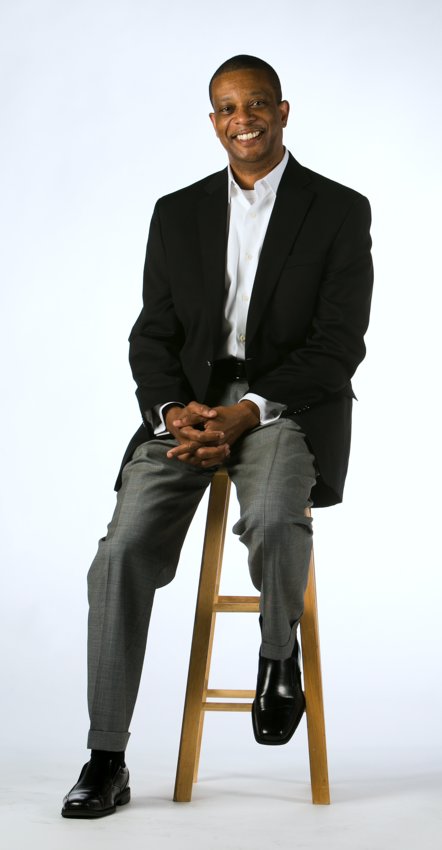
David Knight, 62
Chief Revenue Officer, Advance Ohio, Cleveland, Ohio (owned by Advance Local, NYC)
First job in news:
My first professional job was as a classified automotive sales executive for The Philadelphia Inquirer and Philadelphia Daily News. Before that, I was a co-founder and sales leader for a student magazine called “On the Move” while attending Temple University.
What are some of the most important lessons you have learned while working in news?
I’ve learned so many lessons working in the industry, but there are three that have anchored my daily work life. One, maintain a growth mindset to get through tough times and changing landscapes — focusing on business, professional and personal growth to achieve success. Two, positive energy leads to creative solutions and sales success. Leverage the positive aspects of situations and strategic problem solving to drive success. Three, collaboration is king for productive digital news and sales operations. There are so many moving parts to digital publishing today that it requires collaboration daily to drive success.
When you reflect on your career to date, what brings you the greatest sense of accomplishment?
I learned early on in my career that it wasn’t about me. It’s about the people that I can educate, empower and enlighten. My biggest sense of accomplishment has been the people on my teams that I have helped become successful, well-rounded and thoughtful leaders in business, community and their families. I realized early in my career that I had a gift for helping people be successful. I cherish this gift and the responsibility. Today, I continue to be there for my past team members, and I practice “Servant Leadership” with my current team members.
What are your predictions for where news publishing/news media is heading?
I have three thoughts about the future of news. First, the value of the first-party news audiences increases substantially. People want the facts and the truth, which means they will turn more and more to respected news media. Second, someone in digital news media will create a new type of news content product created specifically for the smartphone and smartphone engagement. Third, news media will acquire revenue-producing digital assets to fund journalism.

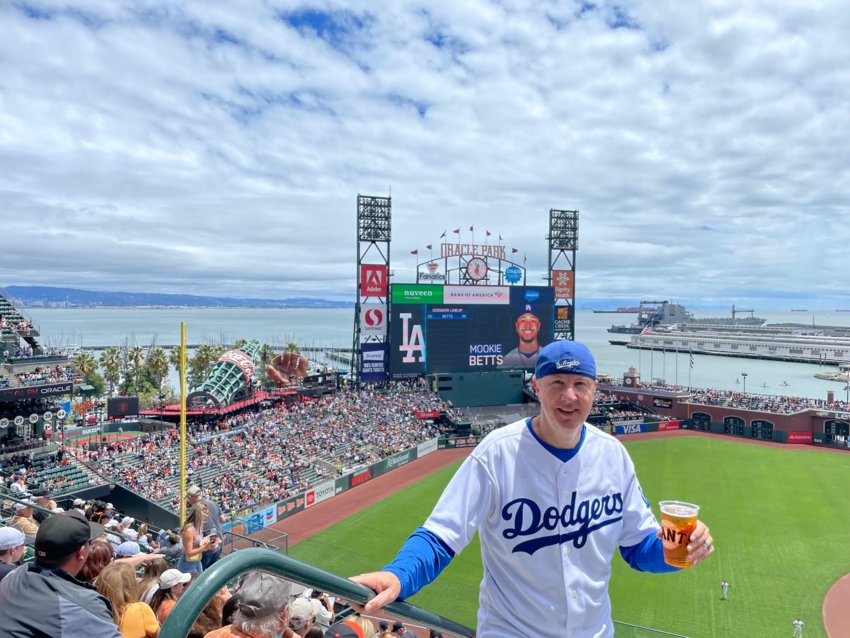
Aaron Kotarek, 51
Senior Vice President, Audience and Operations, Oahu Publications, Inc., Honolulu, Hawaii
First job in news:
District Manager at the Herald Times Reporter in my hometown of Manitowoc, Wisconsin.
What are some of the most important lessons you have learned while working in news?
Many of the lessons I learned have come from my mentors. From the very beginning of my career, Bill Hackney taught me to be a meticulous networker and to foster and cultivate relationships with as many industry peers as possible. I take great pride and have a fond appreciation for the camaraderie and friendships I have enjoyed over the years. If I do not have the answer to a question or an issue, I can guarantee you I know someone who does, and my extensive contact list is used often.
Another mentor, Rufus Friday, taught me mantras that I continue to embrace each day:
And lastly, OPI’s President and Publisher, Dennis Francis, has taught me how to THINK BIG. Here at OPI, we realize that only big risks will yield big rewards. When I came to OPI nearly eight years ago, I was a much more risk-averse executive than I am today. Once you work here, an innovative and entrepreneurial spirit is instilled within you, and you're constantly searching for the next big thing. This attitude and culture make coming to the office every day an exciting proposition.
I wouldn’t be where I am today without the guidance and tutelage of those three executives, along with other supporters and confidantes, such as Ron Redfern, Doug Sumrell, Gayle Pryor, David Kennedy, Rick Hively, Jeff Kohler and Jim Smith. You can see I learned a final lesson from each of them: to give credit where credit is due. So, a big thanks go out to them for their unwavering support over the years.
When you reflect on your career to date, what brings you the greatest sense of accomplishment?
For me, it’s looking back at all the wonderful executives I have worked with, spanning nearly 30 years and seeing how their careers have blossomed. Nothing gives me greater pleasure than getting a phone call or an email from a former colleague and hearing about their successes.
Personally, I look at my tenure and longevity in this industry with a sense of pride. I have been through it all — new supervisors, ownership changes, consolidations, increased responsibilities, transfers, moves across the country, structure flattening, etc. But the ability to remain steadfast and resolute has allowed me to persevere to where I find myself today, and I wouldn’t change a thing.
What are your predictions for where news publishing/news media is heading?
I predict publishers will continue to diversify their digital product portfolios and pivot to more multimedia-driven presentations, including video, podcasts, vodcasts, live broadcasts and digital-out-of-home mediums, while preserving some form and frequency of a print longtail.
Publishers will move away from charging inconsequential price points for their digital content, develop enhanced econometric price models, and charge consumers suitable rates for news/advertising content deemed local, relevant, differentiated and credible.
Organizations will be smaller but likely nimbler as they continue to experiment with sustainable business models to fund the news and advertising gathering infrastructure that is requisite for them to remain relevant in a crowded space.

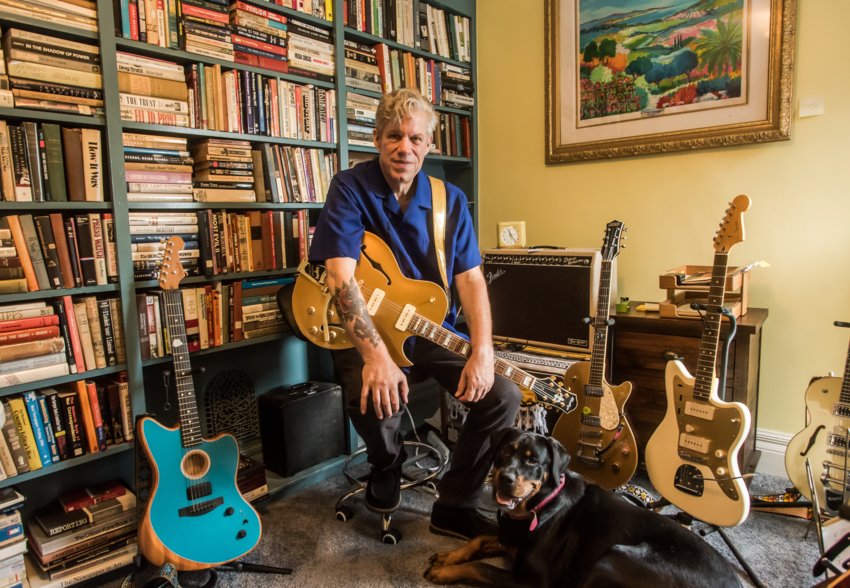
Howard Owens, 61
Publisher, The Batavian, Batavia, N.Y.
First job in news:
My first paid job was co-owner of The Beacon, a weekly covering Ocean Beach and Point Loma in San Diego.
What are some of the most important lessons you have learned while working in news?
Learn how to hire good people. Know that you can’t teach initiative, resourcefulness, open-mindedness, honesty or dedication. If an employee doesn’t have those attributes from Day One, they never will. Always focus on revenue. The basics of business never change — produce lots of content relevant to your readers, sell ads relevant to that audience and you will be successful.
When you reflect on your career to date, what brings you the greatest sense of accomplishment?
The success of The Batavian. It’s in its 14th year, which is about 13.5 years longer than all my detractors said it would last. We are highly regarded in our community by readers and local business owners.
What are your predictions for where news publishing/news media is heading?
I’m worried. Facebook is death by a thousand cuts. It’s slowly chipping away at the local audience and local advertising, and there is no effective answer that I can see. I sense that a large portion of the news industry is oblivious to the threat. There's a lot of chatter about the threat of Google. Google isn’t a threat. It’s a complement to what we do online. Facebook is a serious existential threat, which makes it a threat to democracy. If not for Facebook, I’d think the sky is the limit on digital growth for local news.

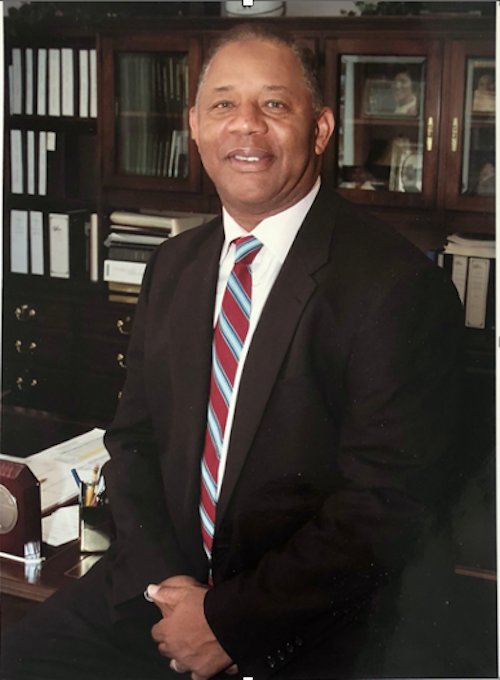
Charles Pittman, 74
Senior Vice President of Publishing, Schurz Communications, Inc., South Bend, Ind.
First job in news:
Promotions Director at the Erie Times-News, Erie, Pennsylvania.
What are some of the most important lessons you have learned while working in news?
Don’t be afraid to “Disturb the peace and challenge the status quo.”
If you challenge people to be better at what they do, they will, more often than not, respond positively. Progress is not made by solving problems but by exploiting opportunities. Solving problems only gets you back to normalcy.
When you reflect on your career to date, what brings you the greatest sense of accomplishment?
The number of people I have worked with over the years who subsequently developed into fine leaders and professionals while simultaneously becoming exemplary parents and grandparents.
What are your predictions for where news publishing/news media is heading?
In my opinion, the future of news publishing and the news media is troubling at best. This is primarily due to the increased cost of printing and distribution as well as the increased cost of digital subscriptions. In my view, any business that is heavily dependent on advertising revenues is in a risky position. Podcasts and social media companies will continue to be formidable competition to news publishers, and they must respond accordingly.

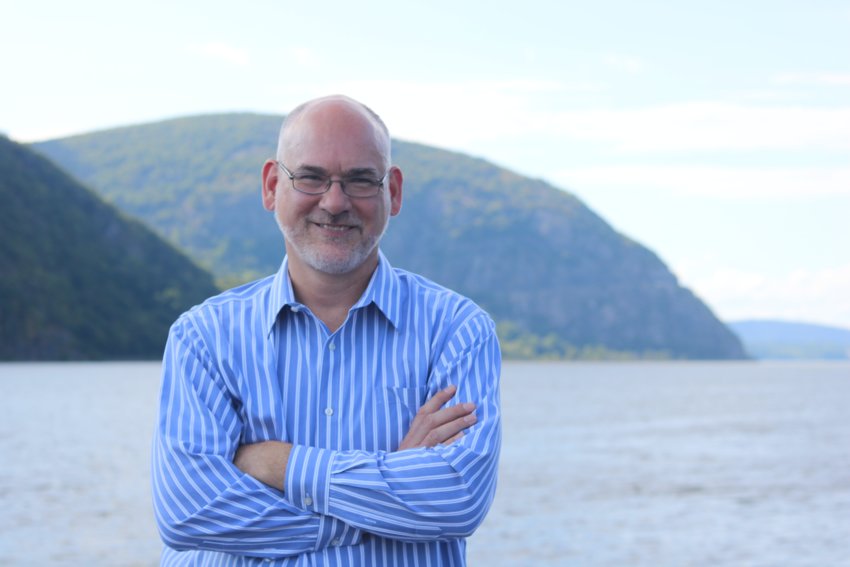
Chip Rowe, 55
Editor, The Highlands Current, Cold Spring/Beacon, N.Y.
First job in news:
I was the editorial assistant at the Grand Haven Tribune in Grand Haven, Michigan, during high school. I handled the obits, weddings, “Looking Back” column and fishing conditions. I like to think it was the golden age for those features.
What are some of the most important lessons you have learned while working in news?
That what you report has consequences. You have to be able to accept that. I think the best journalists can understand if not empathize with all “sides” of a story and seek them out. That’s an acquired skill, perhaps, wading into the uncomfortable gray areas and staying there even when you want to dart to safety. There is constant pressure to join one team or another. As they say, you need thick skin, which I don't think most journalists actually have. We take it personally because we are invested.
When you reflect on your career to date, what brings you the greatest sense of accomplishment?
That’s a tough one. These days, having a career in journalism can feel like an accomplishment. I think the in-depth stories or series I have written bring the most satisfaction, especially if you uncover material that hasn't been widely reported or sources who had a story to tell but would not otherwise have told it.
What are your predictions for where news publishing/news media is heading?
It’s hard to believe newsprint will survive another generation, but that’s just a change of medium. The bigger issue is trust. When pollsters ask people how much they trust “newspapers” or “the media,” we manage to beat Congress. The question is unfair, of course — what is “the media?” — but you hope that outlets that adopt some kind of transparency and report from the gray zone will survive and thrive. An important part of that is a populace that will accept the gray over the black and white, which I don’t think is the trend.

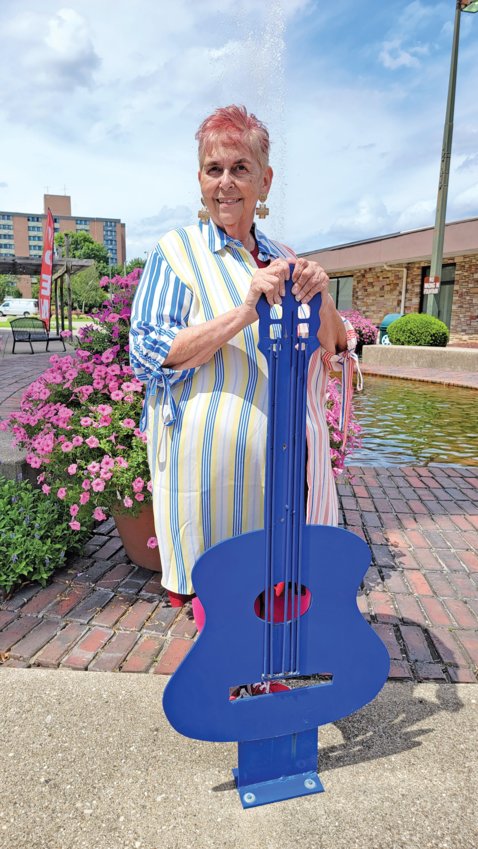
Cathie Shaffer, 73
Owner, The Greenup Gazette, Greenup, Ky.
First job in news:
Features editor at Farmland News (a farming weekly) in Archbold, Ohio
What are some of the most important lessons you have learned while working in news?
All you really have is your credibility. Getting the story first doesn’t matter as much as being honest with your sources and readers. Going from a blank screen to getting the paper to the reader takes a whole team, and they all matter.
When you reflect on your career to date, what brings you the greatest sense of accomplishment?
It is immensely satisfying knowing that what I do, and have done for years, makes my community a better place. Of course, there are memorable stories, awards and accolades, but letting people know what is happening around them is what matters most. And having a son who, despite my best attempts to dissuade him, also became a journalist makes me proud, as well.
What are your predictions for where news publishing/news media is heading?
While the model of the past isn’t working as it once did, newspapers will continue. Smaller papers will continue to fill the local news void for many communities, but larger, regional papers will need to revamp how they do business and accept lower profits to succeed. I anticipate that many communities will find ways to help support locally-owned newspapers in innovative ways.

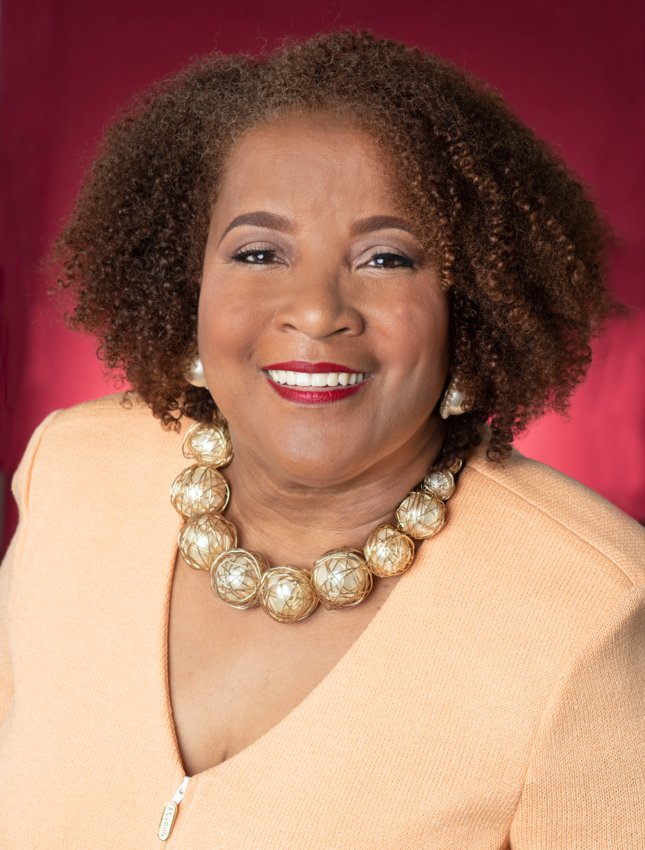
Cheryl L. Smith, 64
Publisher and Executive Editor, I Messenger Media (Texas Metro News, Garland Journal, I Messenger and Metro News), Dallas
First job in news:
A reporter for Capital Outlook in Tallahassee, Florida. Fresh out of college, I went from interning and learning every aspect of the business to working hard, full-time, for the money!
What are some of the most important lessons you have learned while working in news?
Let your work speak for you. Research, clarify, verify and never assume.
While some say there are no dumb questions, there are some ill-prepared, inconsiderate and inappropriate ones. Be respectful at all times.
Don’t focus on trying to be a celebrity; instead, do good work that will be celebrated.
Everyone has a story. Listen and don't overtalk sources during interviews. Build and cultivate sources. Thank people for their time.
When you reflect on your career to date, what brings you the greatest sense of accomplishment?
I love that long before there was “convergence” or multimedia journalists, I was delving across platforms and learning all forms of journalism as an educator and practitioner.
My biggest sense of accomplishment has been realized through my efforts as a mentor to so many aspiring journalists — whether it was in the Dallas-Fort Worth Association of Black Journalists’ Urban Journalism Workshop; for NABJ, and the numerous students I taught at Paul Quinn College, Univ. of North Texas, Texas Woman’s University, Dallas College; and those my alma mater, FAMU. I have tried to be to others what I felt I needed.
What are your predictions for where news publishing/news media is heading?
I am optimistic that news publishing/news media will bounce back stronger as more organizations realize and take advantage of opportunities to collaborate and reinvent. Even though we hear of the doom and gloom of print, skillful business models and aggressive and innovative ways to engage audiences will ensure a brighter future. Living in Texas, there was a time when we were without power. Guess what? People picked up our publications! I don’t care what platform it is; if you are not serving a need or a want, you will become obsolete. But those who are more engaging than arrogant and more involved than oblivious will find that audiences appreciate them more.
I sincerely believe this cycle must run its course, and those in the industry must also run it. Sitting back waiting for audiences to come to you is like having a party but not inviting anyone. We’ve got work to do! We must build trust, and we have to be involved.

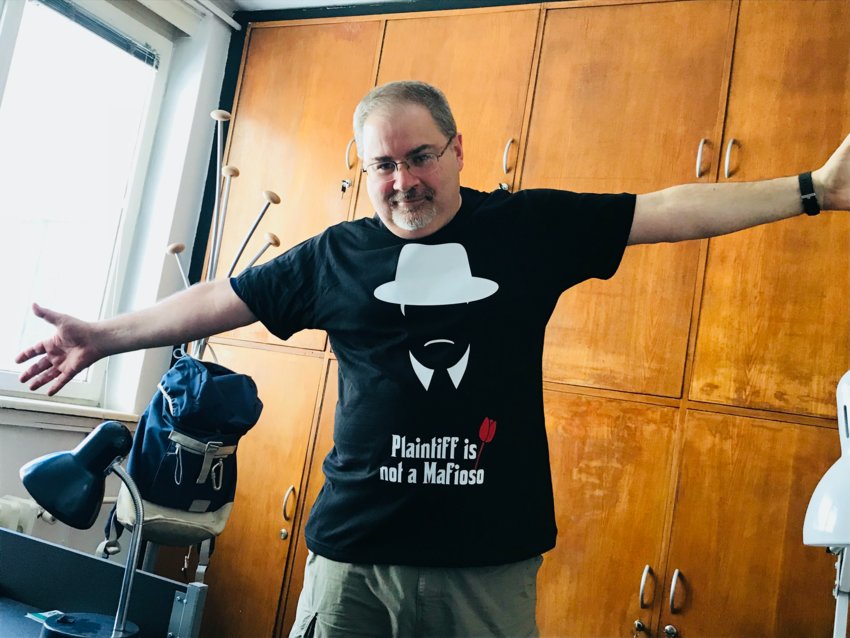
Drew Sullivan, 58
Editor and Publisher, Organized Crime and Corruption Reporting Project (OCCRP)
First job in news:
National Institute for Computer Assisted Reporting.
What are some of the most important lessons you have learned while working in news?
The more I live the journalist’s life, the more I realize that high professional standards, craftsmanship in storytelling and pride in your product not only still matter but matter more than ever. I also have realized the power of cross-border collaboration. Working with great local reporters really matters, and collaboration is a skill that takes a long time to develop.
When you reflect on your career to date, what brings you the greatest sense of accomplishment?
Starting and nurturing OCCRP to where it is may be my greatest accomplishment, although it’s one I share with many, many people, especially my co-founder Paul Radu.
What are your predictions for where news publishing/news media is heading?
I am a believer that the future of journalism is very bright, but not in its current format. I believe the nonprofit model has far more potential than the commercial model, especially in investigative reporting. That’s because it will drive us to focus on our readers and the needs of our society in ways that the commercial model does not. We don’t need billionaires to own our papers. We need a purpose, a service we can provide and the appreciation of our readers. We can get that by being a serious servant of the information needs of the people.

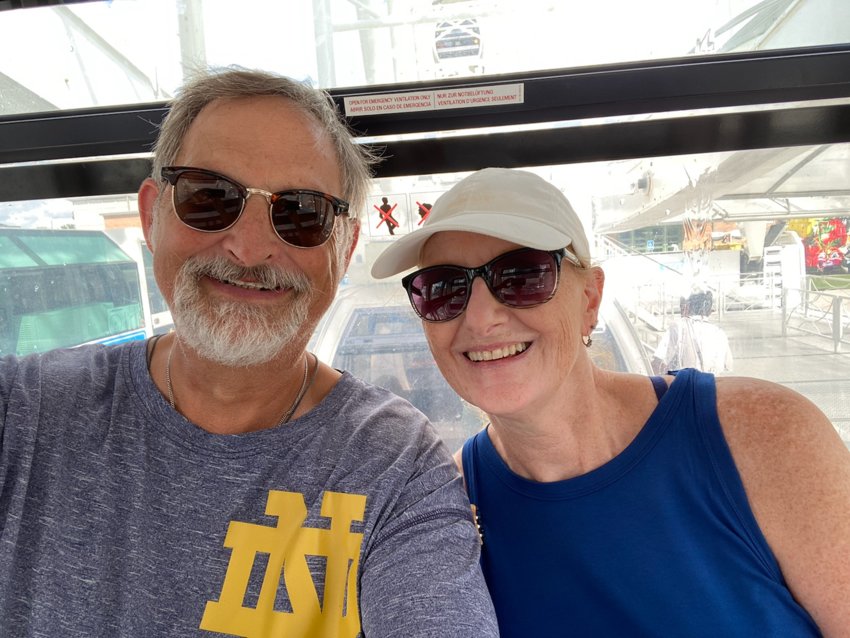
Tim Timmons, 65
CEO, Sagamore News Media, Crawfordsville and Noblesville, Ind. — But in our small company, I take out the trash, type briefs, sell ads … just like everyone who owns a small newspaper does.
First job in news:
High school correspondent, Indianapolis News, Indianapolis.
What are some of the most important lessons you have learned while working in news?
Be curious, listen and don’t assume.
When you reflect on your career to date, what brings you the greatest sense of accomplishment?
I treasure the letters, notes, emails and calls I get here and there from people I used to work with who say that I helped them in some way. I’m not sure who helped who the most, but our industry needs talented people. And I’ve been lucky to work with some very talented folks. When they keep in touch, it means a lot.
What are your predictions for where news publishing/news media is heading?
It’s such an interesting time. There’s no doubt of the danger, yet there is opportunity as well. I think the biggest danger lies in trying to continue operating as traditional newspapers. In our company, the vast majority of our readers subscribe to our daily online editions, but we have to be aware that won’t last forever. At this point, an online edition is probably just a transitory product to whatever the next thing is.
Certainly, we have learned that social media has changed news coverage. In the old days, we would send a reporter and photographer out to the interstate when there was a big wreck. But now, that wreck is being tweeted or posted within minutes, even seconds, of when it happens on social media. No one is waiting to read about it the next day. While that doesn’t mean we ignore it, it should mean we don't present it as breaking news the next day when it’s 20-something hours old.
As an industry, we would give a lot if readers would spend as much time with our product as they do scrolling through FB. Yet, in so many cases, we continue to produce the same kind of front pages and news that we did five, 10 or 30 years ago. No, we shouldn’t start publishing stories about cute kittens or epic fail videos, but we also shouldn’t keep running play-by-play sports stories and mundane meeting coverage either.
We have an opportunity to reinvent ourselves into media companies that connect to our communities in ways we’ve never done before. And if we do, our future looks pretty good.

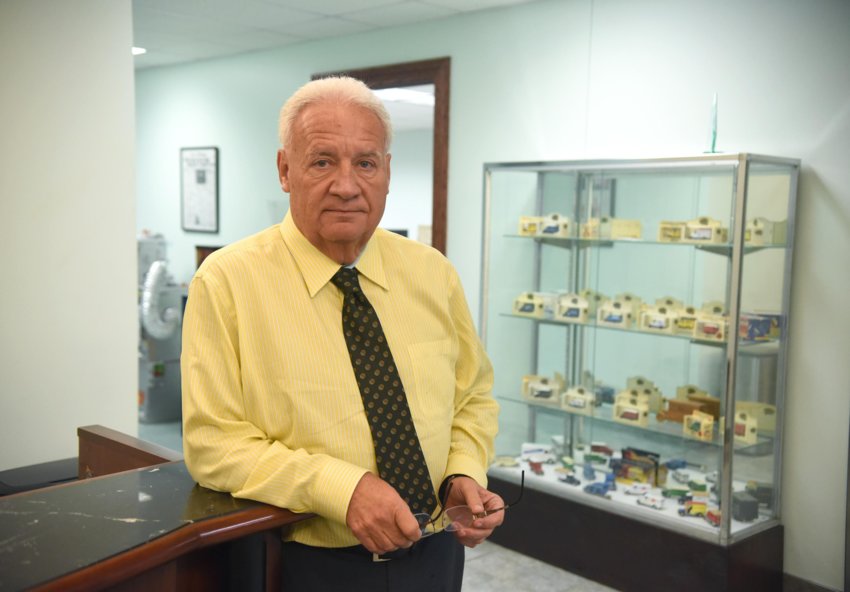
Ron Vodenichar, 67
President and Publisher, Butler Eagle and Eagle Printing, Butler County, Pa.
First job in news:
I started in the newspaper industry as a circulation district sales manager at Thomson Newspapers.
What are some of the most important lessons you have learned while working in news?
The customer knows what he wants; the newsroom does not. The newspaper serves no one if it fails to shed light on improper acts in the community.
We are more than community cheerleaders. There must be a sound balance between financial success and news coverage. One without the other makes an easy target for the big chains to buy them.
Employees make the newspaper. They must be heard and trusted.
When you reflect on your career to date, what brings you the greatest sense of accomplishment?
My claim to fame would be two-fold. First, I have recruited and trained over 20 candidates who have succeeded to at least the department head level at various newspapers in all departments.
Secondly, I have managed to keep a small family-owned newspaper successful and viable through the many challenges over the past 34 years.
What are your predictions for where news publishing/news media is heading?
My years with the industry are probably growing short, but my hope for the future is that local news remains a strong factor in communities and that we never let go of the concept that no one, not an editor, not a reporter, not an ad director or a publisher knows what the reader wants. We must always strive to give them that.

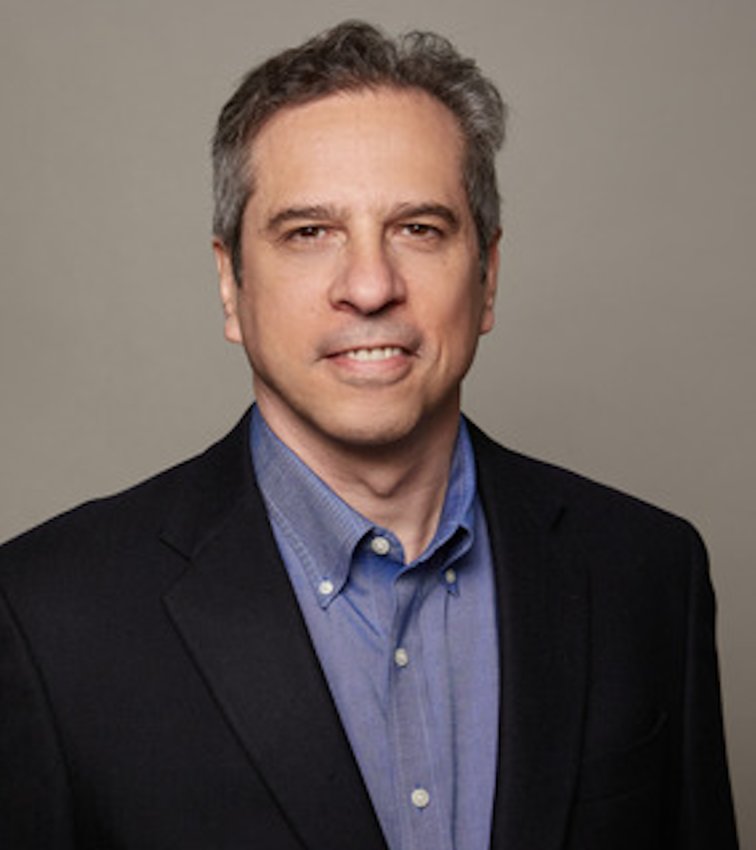
Steven Waldman, 59
President and Co-founder, Report for America and Founder of Rebuild Local News Coalition
First job in news:
Intern with the Duluth News-Tribune in Duluth, Minnesota.
What are some of the most important lessons you have learned while working in news?
Watch where the pack is going, and then try something completely different.
When you reflect on your career to date, what brings you the greatest sense of accomplishment?
Conceiving of and co-founding Report for America. Starting Beliefnet, which became the largest multifaith spirituality website in its day. My two books on religious liberty. I have deep, enduring friendships with people I’ve worked with on all those projects.
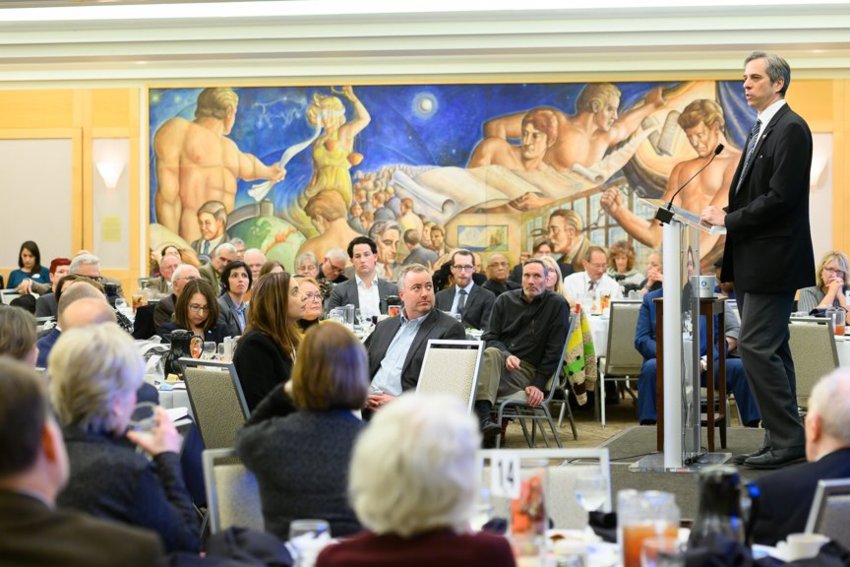
What are your predictions for where news publishing/news media is heading?
National and international news will continue to evolve in exciting ways. As for local news, we’re at a crossroads. We will either enter a bleak era of partisan news (characterized by some combination of news deserts and partisan content), or we’ll collectively move toward an era of civic news. That will require major shifts in the way commercial media thinks about its role, the way philanthropy thinks about their obligations and the way government policy treats this topic.

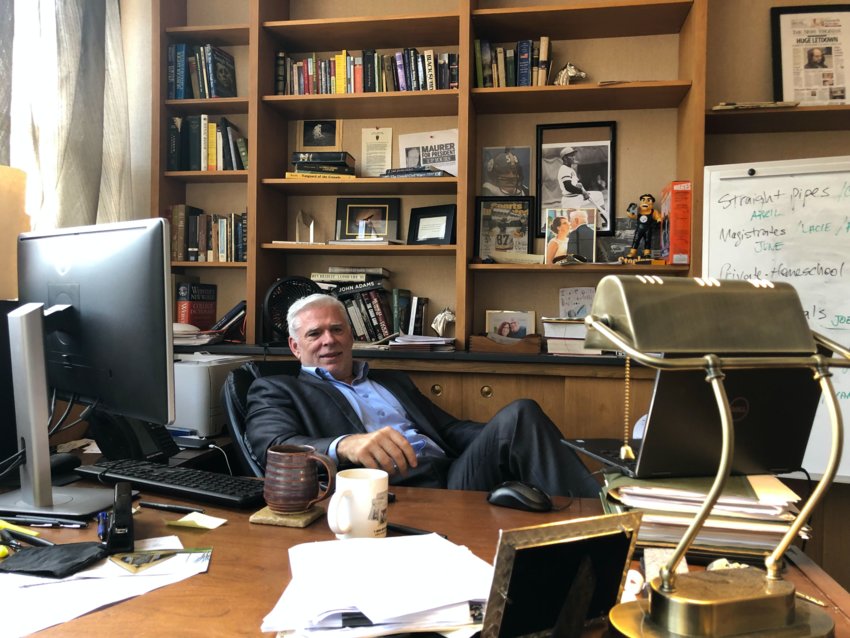
Lee Wolverton, 55
Vice President of News and Executive Editor, HD Media, LLC, Charleston, W.Va.
First job in news:
Sportswriter, Beaver County Times, Beaver, Pennsylvania.
What are some of the most important lessons you have learned while working in news?
The most important lesson has been understanding that the pursuit of truth isn’t just fundamental to the work of journalism but also to leading people. Robert Caro said, “What is a great reporter? Someone who never stops trying to get as close to the truth as possible.” That's the mission.
Understanding that gets rid of the things that hurt us and make us look like bigger fools than we naturally are already. Because I am pursuing truth, I must admit when I’m wrong, which is more often than I’d like. It’s what we do when we make a mistake in our work. We correct errors promptly. We face it. That discipline is important because the sting of getting it wrong is such that we don't want to feel it again. Admitting wrongs as part of pursuing truth as a leader helps me get it right the next time, and it blocks the egoism to which I am inclined and which prevents me from growing.
I’ve also learned how important having fun and sharing laughter is to our work. My laughs with reporters and editors are among my most treasured memories and a favorite part of my day.
When you reflect on your career to date, what brings you the greatest sense of accomplishment?
First, seeing so many people with whom I’ve worked doing so well.
One of my best reporters, Katy Evans, is now an editor at The Washington Post. Elliott Robinson, an assistant city editor at The Daily Progress in Charlottesville, is the news director for VPM in Richmond, Virginia. Tony Gonzalez, another former reporter, is an editor at NPR in Nashville. His best friend, Chase Purdy, who also worked for me, has written a book. The list goes on. Our people here at HD Media have done great things and will do more.
Their accomplishments aren’t mine, but I feel a deep sense of accomplishment in their success. Helping people fulfill their potential is ultimately why editors are here.
Second, I am gratified by the leadership shown by HD Media in filing an antitrust claim against Google and Facebook. Doug Reynolds, our company owner, determined to pursue this course after he and I talked in my office last year. Many of us in this business, including our former publisher, have talked about this problem for years. Doug listened and acted.
This claim can be a salvation for our industry. We’ve been locked out of digital advertising’s skyrocketing growth. This could change that. What could be bigger?
What are your predictions for where news publishing/news media is heading?
I predict trouble if we don't break the duopoly of Google and Facebook and if we don’t get our fair share of the billions of dollars in digital advertising that are going to a few companies while thousands of us scramble for crumbs.
If we don’t stand up and fight, and that means in the courtroom, rather than relying on help from Congress, our business is headed for ruin. If you think otherwise, look at the Pew Research Center data on advertising revenue and tell me I’m wrong. I’m not. We must fight.
If we do and win, we can be stronger than ever.
We must be fully digital. But we must remember, digital isn’t counter to journalism. Journalism works. Great reporting and great writing work. The analytics prove this. The Washington Post, New York Times and Wall Street Journal excel at these things and have more digital subscriptions than anybody. Great stories are great business.

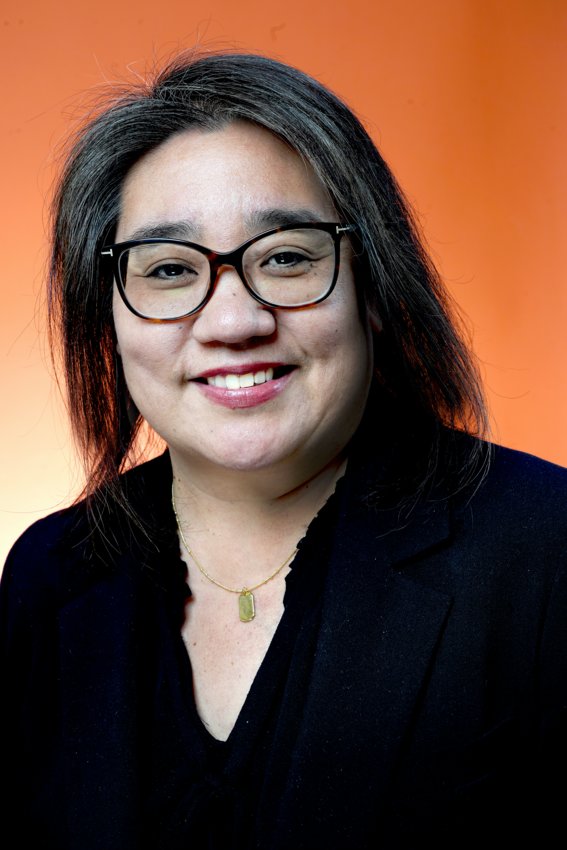
Kimi Yoshino, 50
Editor in chief, The Baltimore Banner, Baltimore, Md.
First job in news:
Reporter, The Stockton Record, Stockton, California.
What are some of the most important lessons you have learned while working in news?
Stay curious. Always keep learning and evolving. When you make a mistake, learn from it. Remember who we’re serving: our readers and the people in our communities.
When you reflect on your career to date, what brings you the greatest sense of accomplishment?
This is hard. As an editor and manager, there are people I hired and nurtured who I think are doing great things in journalism today, and I like to think I had a small part in shaping their careers and helping them grow. When they succeed, I feel like a proud parent. One of my all-time favorite jobs was as the business editor at the Los Angeles Times. It was my first time running a large team, shaping coverage, managing through challenges, and launching and landing big projects. My most recent job as EIC of The Baltimore Banner has been hard to beat. There have been multiple milestones and accomplishments already — first hires, first billboards and the first scoop. But the day we launched our site was one of the all-time best moments in my career.
What are your predictions for where news publishing/news media is heading?
I see the trend in nonprofit journalism continuing with more local news operations and more niche, issue-focused sites. The competition for people’s attention will continue to be fierce, and that will force traditional journalists and news outlets to experiment with storytelling formats and platforms while still delivering quality reporting.

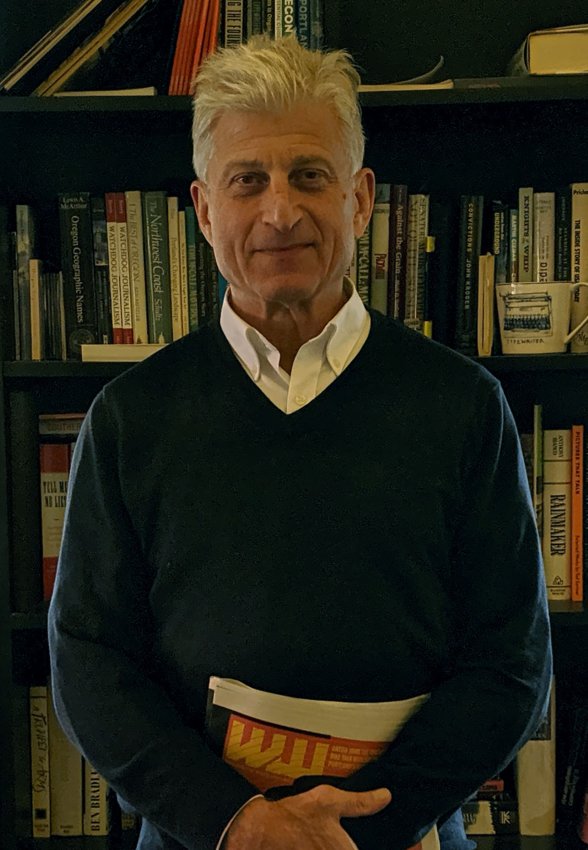
Mark Zusman, 68
Editor and Publisher, Willamette Week, Portland, Ore.
First job in news:
Intern for syndicated columnist Jack Anderson in Washington, D.C.
What are some of the most important lessons you have learned while working in news?
The vital connection between truly independent local journalism and the health of civic discourse in a local community. You simply cannot have democracy without local journalism.
When you reflect on your career to date, what brings you the greatest sense of accomplishment?
Without a doubt, working with curious, smart and intrepid reporters — and having us win a Pulitzer didn’t hurt.
What are your predictions for where news publishing/news media is heading?
The optimistic part of me thinks that foundations, community leaders and others understand the importance of supporting local journalism, even when it makes them uncomfortable, and will rise to the occasion. The pessimistic part of me thinks something different.
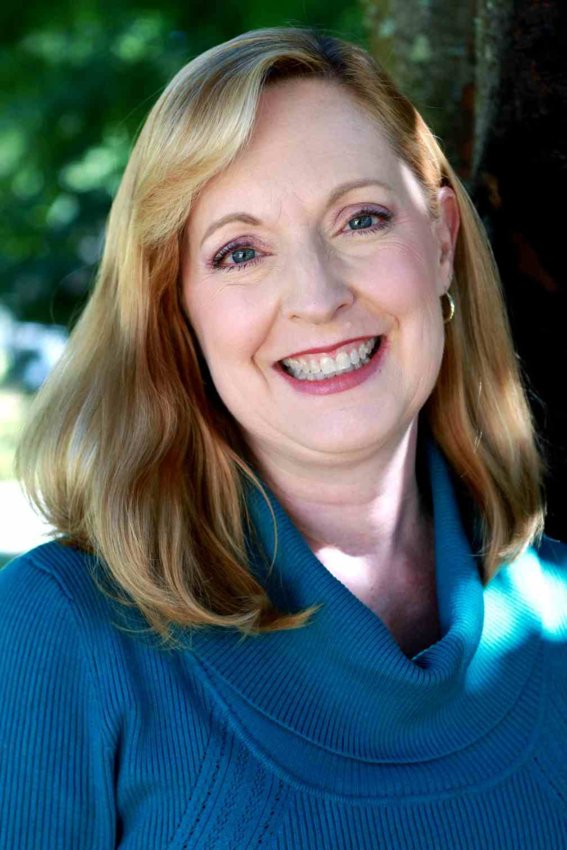 Robin Blinder is E&P's associate publisher and vice president of content. She has been with E&P for three years. She can be reached at robin@editorandpublisher.com.
Robin Blinder is E&P's associate publisher and vice president of content. She has been with E&P for three years. She can be reached at robin@editorandpublisher.com.
Comments
No comments on this item Please log in to comment by clicking here